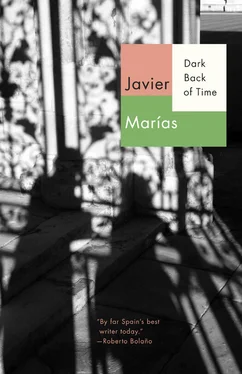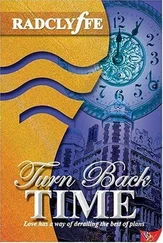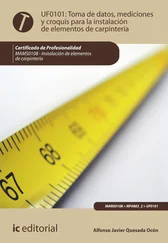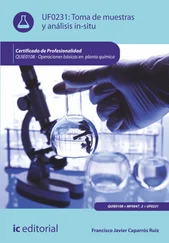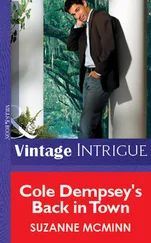… a chambermaid coming to clean his room found the door locked [my italics] and peering through the keyhole saw that the light was still burning. After calling several times she became alarmed, and entering the room noticed that the bed had not been slept in. Proceeding toward the balcony of the window she discovered the body lying in a puddle of clotted blood.…
The fact that the door was locked seems in no way surprising and is not sufficient reason to peep through the keyhole and only then knock several times on the door, rather than knocking first, before doing anything else. Perhaps it was the waste of electricity that alarmed Doña Angelina Trejo de Estrevelt and her desire to put out the superfluous light and make the night cease entirely that prompted her to decide to use her key.
Immediately [the article written in Spanish goes on] she gave notice of this funereal discovery to the boy in charge of the elevator, so that he in his turn, could give notice to the administrator of the hotel, Señor Manuel Olvera. He went precipitately up to the fifth floor and, upon reaching room 53, did indeed find the inanimate body of Señor Etwart. [It would have been quite miraculous if that had not been the case, or perhaps the article was hinting that chamber-maids can be fatalistic and prone to absurd fancies and you can never tell what they’ll come up with.] Immediately he gave notice to the police, the personnel of the fifth precinct presenting themselves moments later, proceeding to raise the corpse. It was in a dorsally prone position and bore signs of a death that was not recent. When the body was examined, it was seen to have a wound from a firearm in the left eye, without exit orifice. It was ordered that the corpse be taken to the Hospital Juárez for the legally mandated autopsy.
The police commissioner, Señor Mellado, made an inspection of the clothing of the deceased finding documents and papers, cash money, a check that had yet to be cashed and a book of blank checks. He also found a receipt from the Banco Montreal where Señor Etwart had deposited on the day of his arrival a goodly sum of money. Señor Mellado drew up an orderly inventory of all this so that the judicial authorities could take cognizance of the case.
Before going on, we need to go back to the beginning of the article, which was published under the following headlines and subheads: “English Subject Dies of a Gunshot,” “Barbaric Habit of Firing into the Air, Had an Outcome,” “Fatal Curiosity,” “Killed When Listening to Popular Rejoicing from Hotel Balcony.” The article begins like this:
From within room number 53 of the Hotel Isabel yesterday, police personnel of the fifth precinct retrieved the corpse of Señor Wilfrid Herbert Gore Etwart, of English nationality and which presented a wound caused by a projectile from a firearm, with an entry orifice in the left eye, the bullet remaining lodged in the skull.
Señor Gore Etwart had arrived the previous night in this capital city proceeding from the United States and on a business trip. From the investigations of the police it is presumed that Señor Etwart died as a consequence of a stray bullet among the many that were fired on New Year’s Eve by one of the numerous troglodytes who cannot express enthusiasm without shooting off firearms.
(It’s been eons since I’ve read or heard the word “troglodyte,” which has become antediluvian, but perhaps in 1923 it was a novelty and struck the anonymous reporter as precise and perfect for this none-too-objective paragraph remonstrating with his compatriots.)
The corpse of the English subject was found on the balcony of room number 53, located on the fifth floor of the Hotel Isabel on Avenida República del Salvador and could be identified owing to the passport contained in one of the pockets of the jacket.
Then, after the narrative previously cited, the article concludes with some repetition and a renewed bout of scolding, but it’s worth reproducing here in its entirety:
The Consul of Great Britain in Mexico, on taking cognizance of the event, presented himself at the precinct house requesting the corpse of Señor Etwart which will be surrendered to him of course.
(The “of course” is rather touching, as if in vehement denial of some offensive insinuation about the honor of the Mexican people, or of their police, who would never withhold the body of a gunshot victim.)
From the declarations of the hotel employees, it is deduced that Señor Etwart, at midnight on the last day of the year, on hearing the whistles and firecrackers announcing the advent of the new year, went to the balcony out of mere curiosity, that being the moment when a shot fired into the air by one of so many careless individuals was to cause him the lesion that must have deprived him of life almost instantaneously.
(Given that no hotel employee noticed the tragedy until noon of the following day, it’s not entirely clear why anything whatsoever “is deduced” from their declarations, which could only have been hypotheses, and the excessive or superfluous explanation that Ewart or Etwart looked out from the balcony “out of mere curiosity” is also surprising, as if he could have done so for some other reason.)
The English section of the newspaper Excélsior didn’t offer any additional information on the discovery of the body, but did relate the death to an accident that had happened to another guest of the ill-starred Hotel Isabel not far away and about an hour earlier: “A strange coincidence in the death of Mr. Ewart is the accident that befell Carlos Duems, representative of the Duems News Agency, who is a resident of the same hotel of the tragic death of the Englishman.”
In its implausible and macaronic English the article goes on to say that towards 11:00 p.m. on the night of December 31, the newspaper’s chief wire service editor, Salvador Pozos, found Mr. Duems seriously injured at the corner of Nuevo México and Revillagigedo, where he had been struck by “one of the many crazed Fords jam-packed with New Years’ revellers,” who had dragged him five yards along the road for greater revelry. Señor Pozos, who was personally acquainted with the victim, a representative of the news agency that bore his name, picked him up and carried him to his room in the Hotel Isabel, located on the same floor as the room occupied by Ewart. Clearly that fifth floor meant trouble, though all in all, Mr. Duems came out of it very well by simply managing to stay alive through those days in that place, for on January 3, just as the newspapers were collecting themselves and beginning to recover from these dreadful events, another British subject named George W. Steabben perished — accidentally, once again, we may suppose — in the crossfire of a fierce brawl that, according to Stephen Graham, erupted between two bands of Mexicans, both riding in cars and firing at each other with no qualms and in broad daylight, though most of them were government officials or congressmen, or perhaps for that very reason, which put all of them “above the law.” Sergio G.R. found the details in a collection of periodicals and, with my gratitude, has permitted me to reproduce them:
On January 3, General Leovigildo Avila and Lieutenant Colonel Constantino Lazcano came out to settle a dispute at the entrance to the Salón Phalerno on calle 16 de Septiembre; surrounded by their friends, they insulted one another and drew their weapons. The outcome of the fray was as follows: the policeman Zavala, wounded in the hand; General Avila, wounded in the arm; Colonel Lazcano, wounded in the shoulderblade and left cheek; Congressman Trillo, wounded in the hand; Pepete the bullfighter, who happened to be passing by, wounded in the right arm; the agent Sotero Reza, wounded in the leg. George W Steabben, who was proceeding to his offices, located across the street from that den of ill repute, received a gunshot direct to the forehead at 17:21 hours.
Читать дальше
